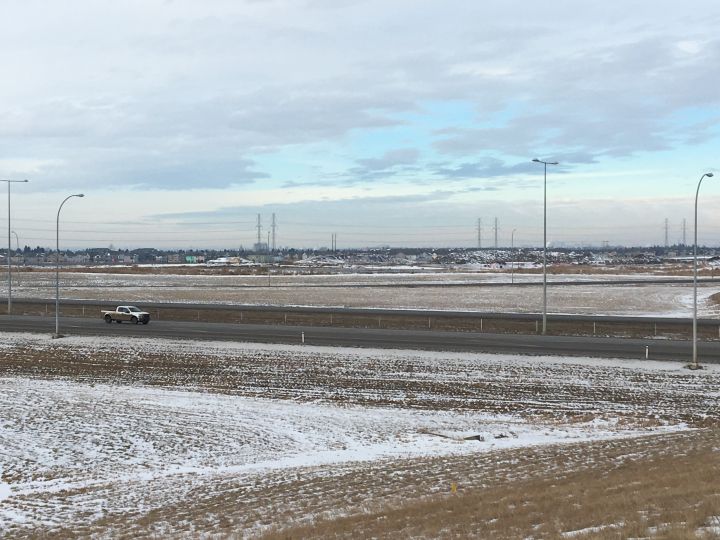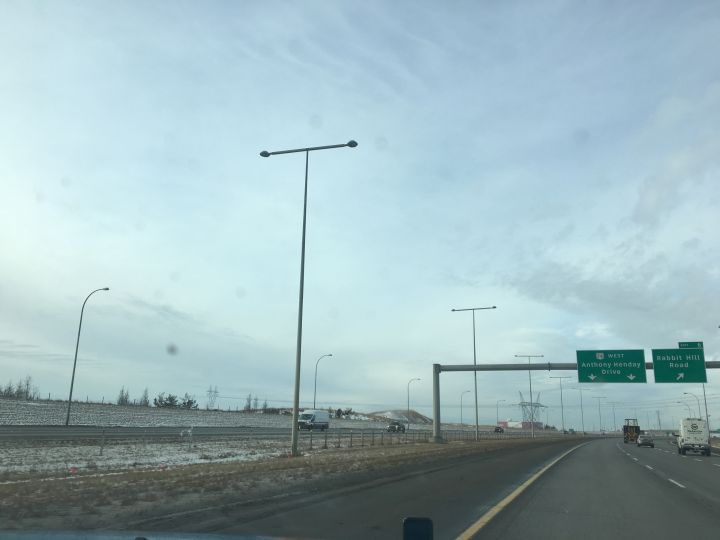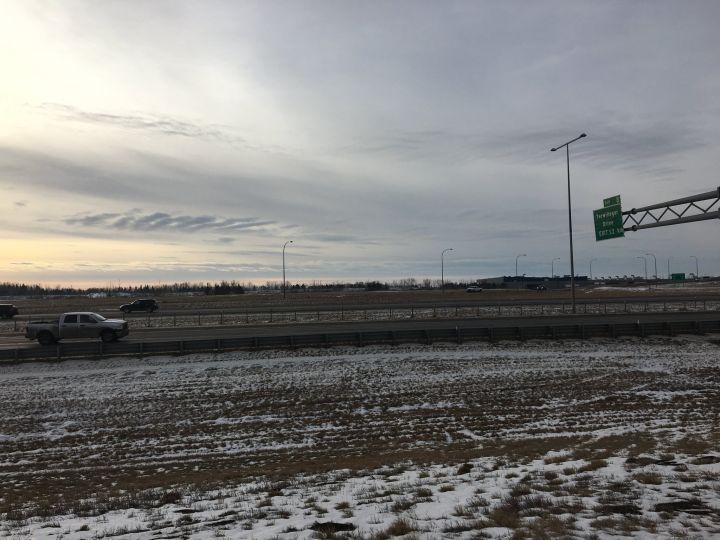The Alberta government is in the process of putting up cable safety barriers around the entire Edmonton ring road as an added safety measure.

“We’re putting high tension cable barrier all the way around the ring road, in the median,” explained Bill Van Der Meer, project manager of Edmonton’s ring road.
“It’s basically to prevent any kind of crossover, head-on type collision. That’s the idea. It’s a safety feature.”
The barriers started going up in the centre median of Anthony Henday Drive this past summer and fall. Crews are working along the northwest, southwest and southeast stretches of the freeway. The cable barriers in these areas are expected to be installed by March.
The remaining stretch of roadway in northeast Edmonton will be finished by March 2019, Van Der Meer said.
“The ring roads, Edmonton and Calgary, are very high volume, high speed roads. Even though the median is wide — that was the whole idea to have clear zone for safety — there have been some crossovers on those roads and so this is just an added safety feature.”
The province started mulling the idea a couple of years ago, but Van Der Meer said the conversation got a bit more serious in October 2016 when a 31-year-old man died in hospital after a collision on the Henday between Lessard Road and Callingwood Road.

Get breaking National news
Police said a Dodge Ram truck heading south on Anthony Henday Drive crossed over the grass median and collided with a Ford F-150. The driver of the Ford died in hospital.
READ MORE: Fatal crash closes west leg of Anthony Henday Drive
“That was probably the time that there was some more serious consideration to doing that as a safety feature on the ring roads,” Van Der Meer said Monday. “I’m sure it’ll save lives.”
At the time, police investigating the crash said safety barriers between the two directions of traffic might have prevented the tragedy.
- Tumbler Ridge B.C. mass shooting: What we know about the victims
- ‘We now have to figure out how to live life without her’: Mother of Tumbler Ridge shooting victim speaks
- There are changes coming to Tim Hortons menus and stores soon
- Oysters from Stellar Bay Shellfish brand recalled for norovirus risk
“There’s a strong probability that, had there been a better median separating the highway — much like our Highway 2 I-beam steel barriers that we have — I’d say there was a strong probability that there may not have been a fatality here today. And maybe just minor injuries to the other motorist,” Sgt. James McLeod, with the EPS Major Collisions Investigation Unit, told Global News in October 2016.
On Monday, Edmonton police reiterated that the October 2016 fatality could have been prevented.
“Had there been a high tension barrier there, I expect that collision wouldn’t have occurred or wouldn’t have ended the same way that it did,” Staff Sgt. Anna-Marie Sinclair said. “In my opinion, any road that’s 100 km/h or higher should have some type of high tension cable barrier between opposite direction lanes of travel.”
READ MORE: Province mulls idea of safety barriers along Anthony Henday Drive
The cable barriers are much easier to repair than concrete or steel barriers, Van Der Meer explained, adding they’re also safer and more flexible.
“Collisions with cable barriers — much less property damage, fatalities are way down and injuries are down with cable barrier so it’s a much safer guardrail system.”
The province has been using cable barriers for about five years. Various highways are now using cable barriers to replace traditional guardrails on the side of the road. Alberta is using them along stretches of the QEII in the Airdrie, Leduc and Deerfoot Trail areas.
The cost of putting up the cable barriers around the entire ring road is about $8 million.












Comments
Want to discuss? Please read our Commenting Policy first.